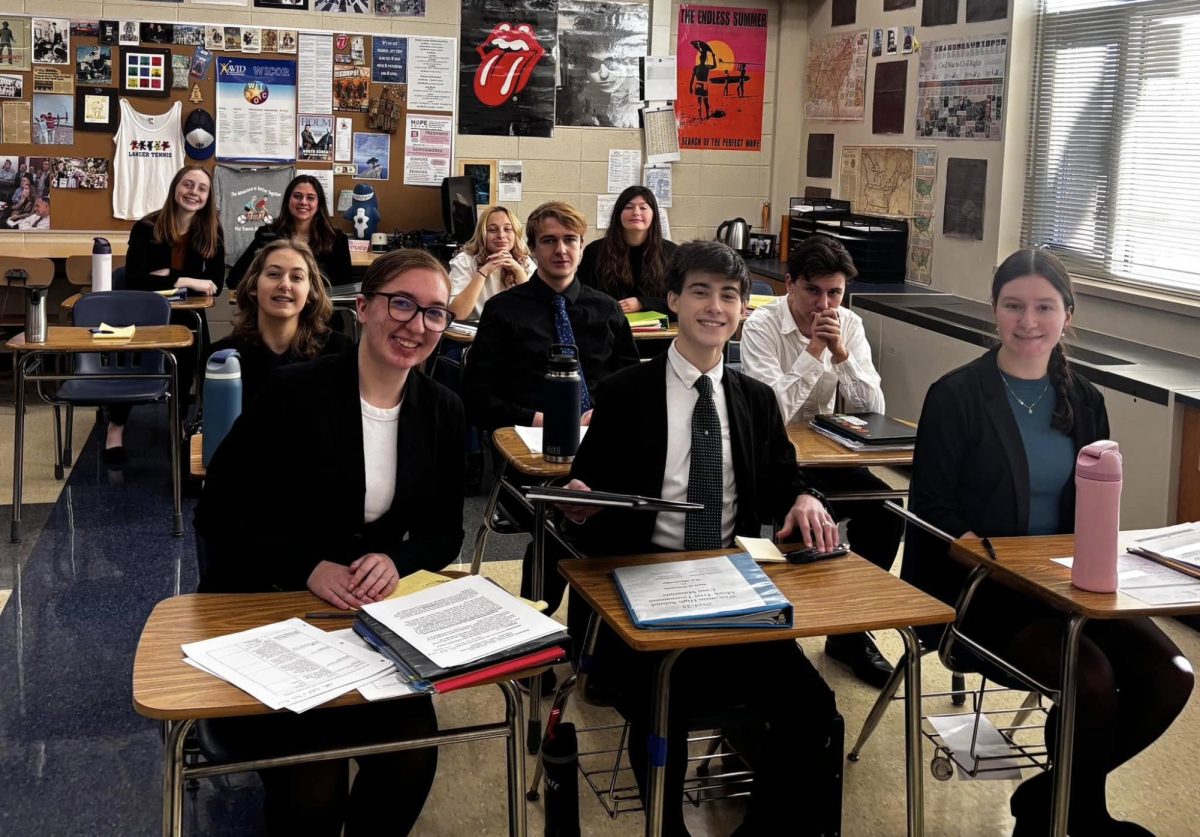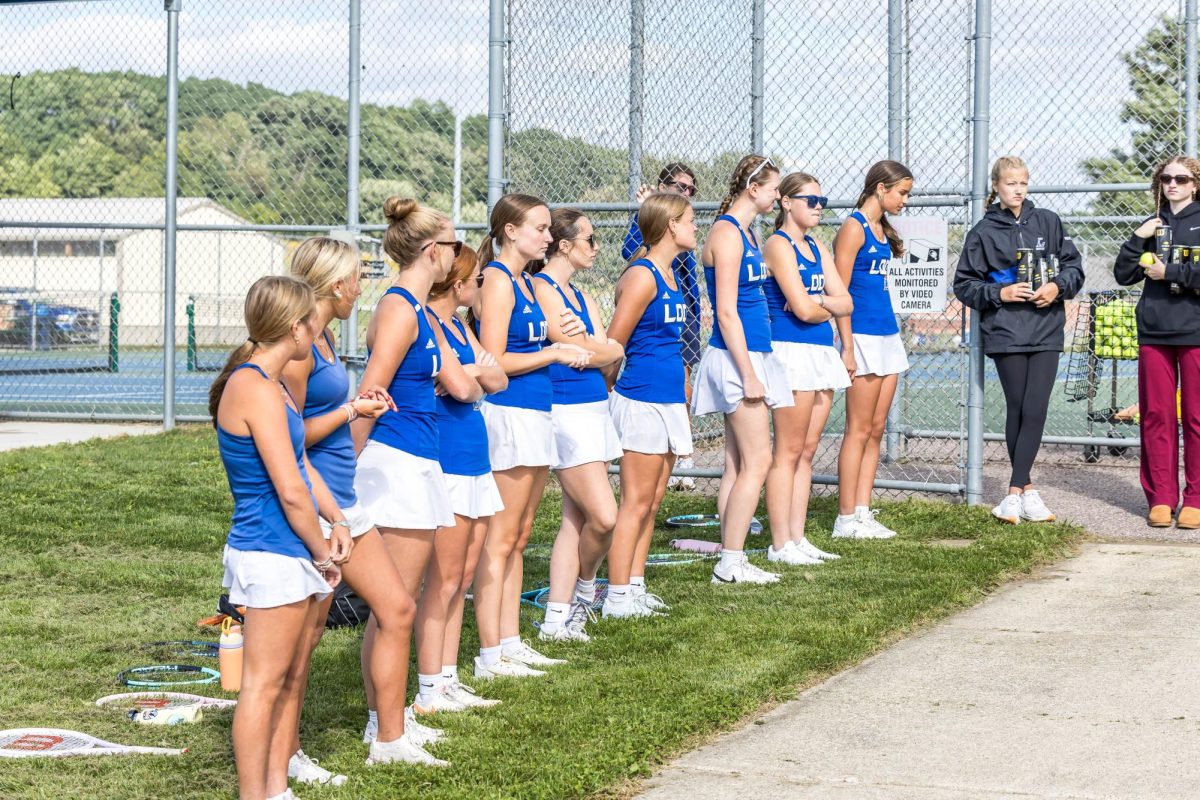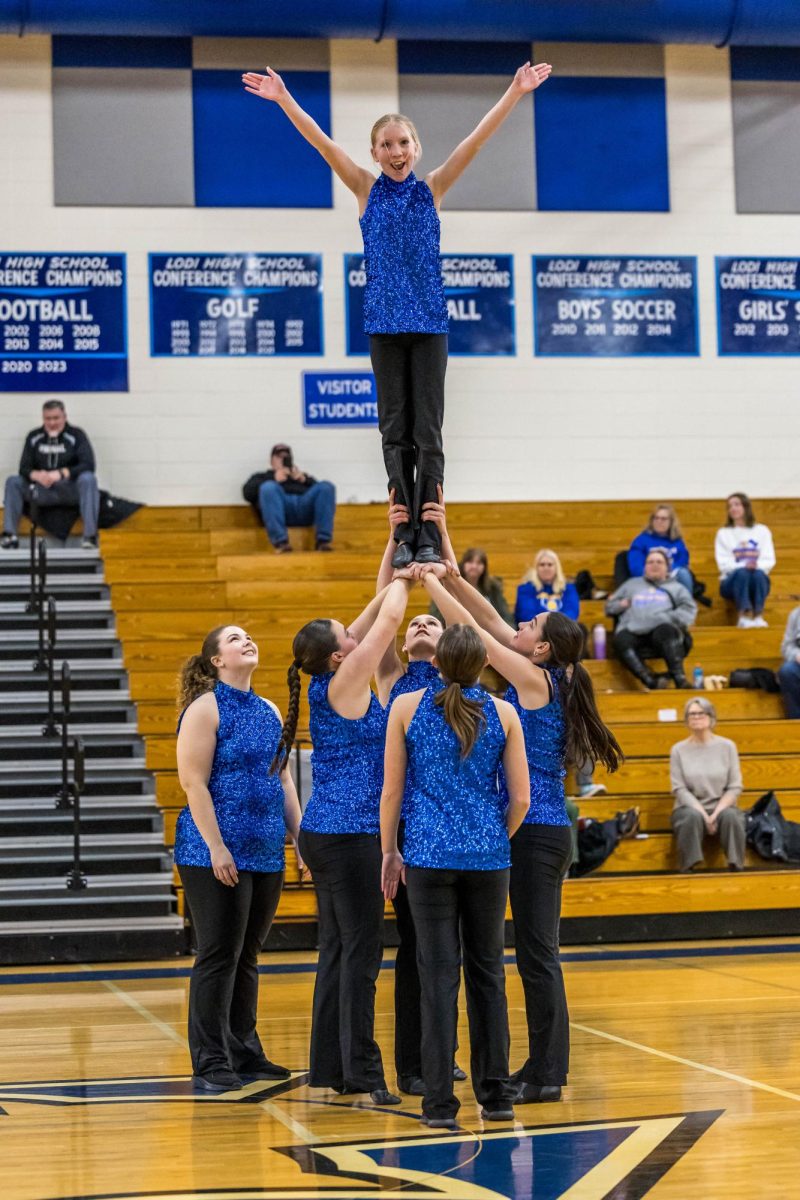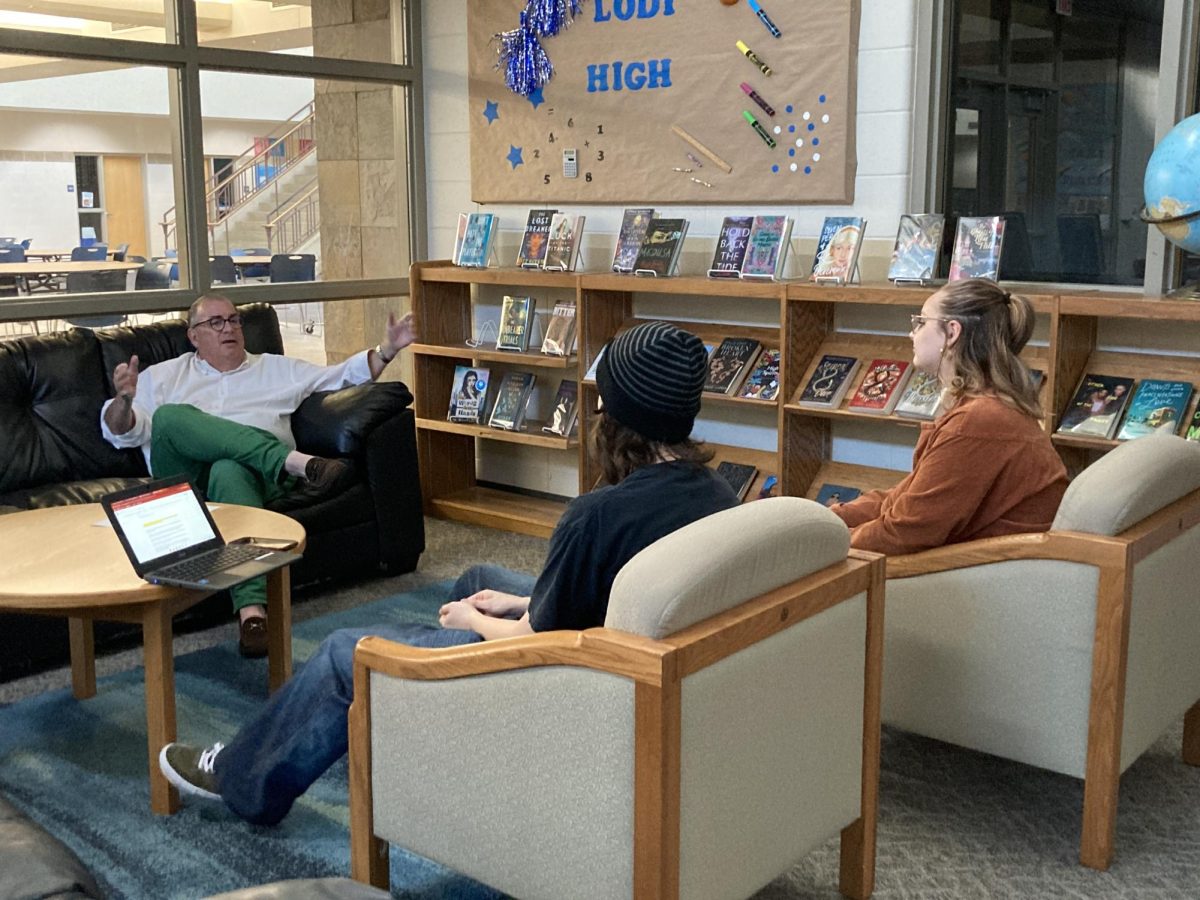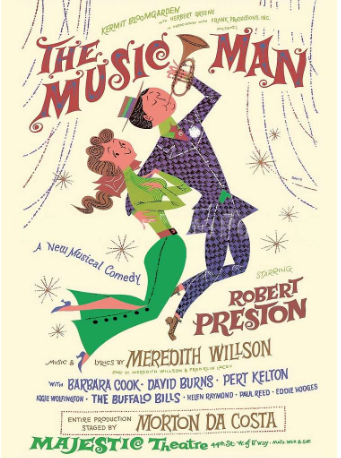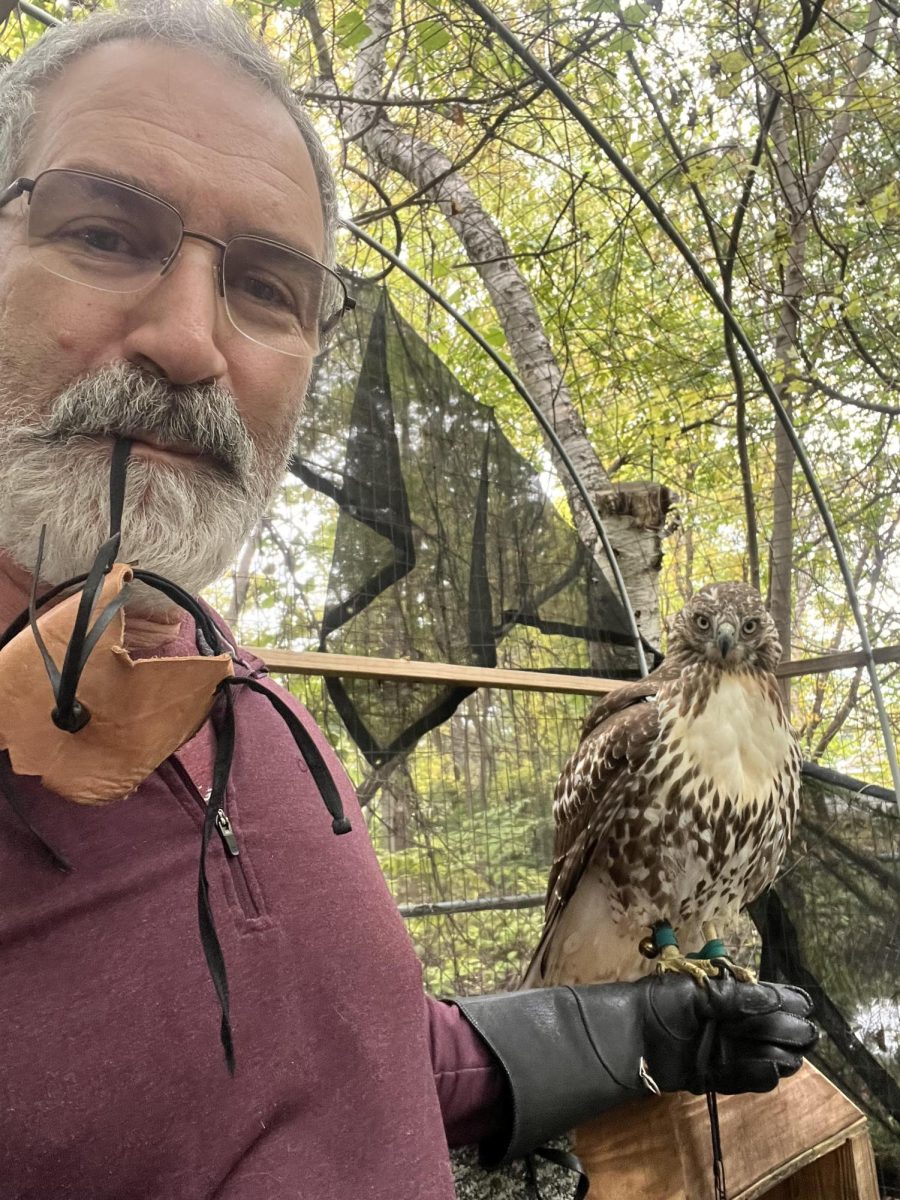Tom Farley, the brother of the late Chris Farley, who was a famous comedian known for his energetic and loud comedic style, recently came to our school, on September 18, 2023, to speak about some serious topics. The Lodi Rotary Club and LCAT worked together to bring us this presentation from Tom Farley for our community.
As many people know, his brother Chris passed away from a drug overdose in December 1997. Chris was known as a very outgoing person, but his brother Tom shared insights into Chris’s feelings of isolation and mental illness, which many people could not see from an outside perspective. Tom reflected on his brother’s struggles with mental health and addiction, including his efforts to help others through humor despite his own pain.
“More so than anything else, you know, he was a people-pleaser,” said Farley. “He wanted everyone to be happy, and he was always trying to be happy because he wasn’t. I think he knew deep down what sadness felt like.”
He explained that Chris suffered a lot from body image issues and didn’t know how to help himself.
“But he knew, through his humor, he could help others. And so he focused on that,” said Farley.
Addiction is an uncomfortable topic to talk about, but it’s something that needs to be talked about. Tom talked briefly about the stigma around the subject and how that makes it harder for people to reach out for help.
He explained how people don’t talk about addiction problems in their family or themselves because of how they are looked at. He mentioned that it was hard to try to find help for his brother outside the family because of the shame people feel about the topic, and that they kept it on the downlow for the most part. Tom said that what he mainly tries to work on in his speeches is taking down the stigma and being able to talk about it.
“The connection is key, but also, you know, the other work that I tried to do as well is working on the stigma piece. Because that’s just such a barrier,” said Farley.
He talked about how connection and support help people recover, and how we now talk about the connection between addiction and mental health, which is so important.
“If we care about our communities, we have to overcome this stigma and the way we think about these things, and people don’t do it because it affects all of us.”


